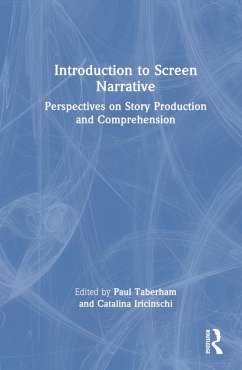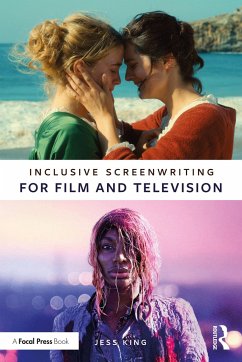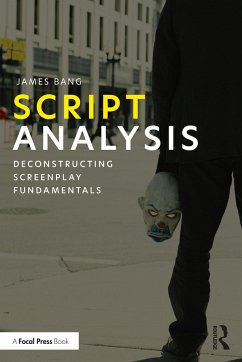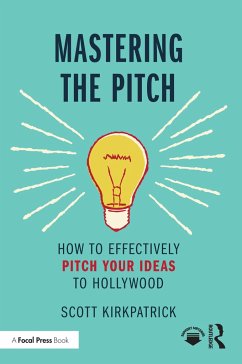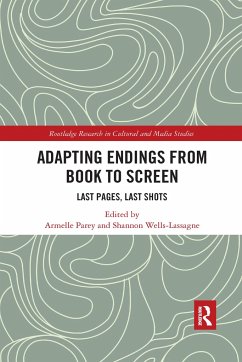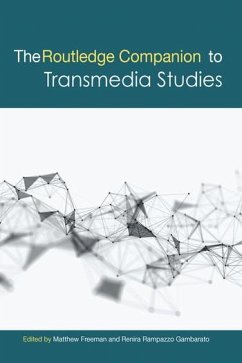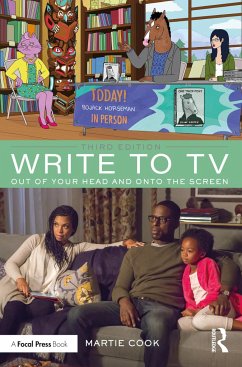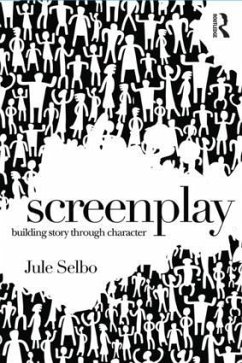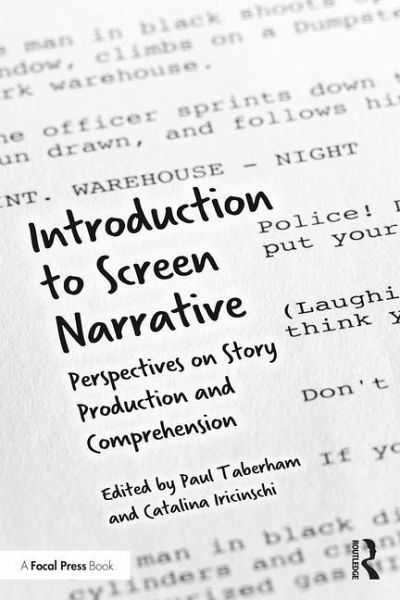
Introduction to Screen Narrative
Perspectives on Story Production and Comprehension
Herausgegeben: Taberham, Paul; Iricinschi, Catalina
Versandkostenfrei!
Versandfertig in 6-10 Tagen
42,99 €
inkl. MwSt.
Weitere Ausgaben:

PAYBACK Punkte
21 °P sammeln!
Bringing together the expertise of world-leading screenwriters and scholars, this book offers a comprehensive overview of how screen narratives work. Exploring a variety of mediums including feature films, television, animation, and video games, the volume provides a contextual overview of the form and applies this to the practice of screenwriting.Featuring over 20 contributions, the volume surveys the art of screen narrative, and allows students and screenwriters to draw on crucial insights to further improve their screenwriting craft. Editors Paul Taberham and Catalina Iricinschi have curate...
Bringing together the expertise of world-leading screenwriters and scholars, this book offers a comprehensive overview of how screen narratives work. Exploring a variety of mediums including feature films, television, animation, and video games, the volume provides a contextual overview of the form and applies this to the practice of screenwriting.
Featuring over 20 contributions, the volume surveys the art of screen narrative, and allows students and screenwriters to draw on crucial insights to further improve their screenwriting craft. Editors Paul Taberham and Catalina Iricinschi have curated a volume that spans a range of disciplines including screenwriting, film theory, philosophy and psychology with experience and expertise in storytelling, modern blockbusters, puzzle films and art cinema. Screenwriters interviewed include: Josh Weinstein (The Simpsons, Gravity Falls), David Greenberg (Stomping Ground, Used to Love Her), Evan Skolnick and Ioana Uricaru.
Ideal for students of Screenwriting and Screen Narrative as well as aspiring screenwriters wanting to provide theoretical context to their craft.
Featuring over 20 contributions, the volume surveys the art of screen narrative, and allows students and screenwriters to draw on crucial insights to further improve their screenwriting craft. Editors Paul Taberham and Catalina Iricinschi have curated a volume that spans a range of disciplines including screenwriting, film theory, philosophy and psychology with experience and expertise in storytelling, modern blockbusters, puzzle films and art cinema. Screenwriters interviewed include: Josh Weinstein (The Simpsons, Gravity Falls), David Greenberg (Stomping Ground, Used to Love Her), Evan Skolnick and Ioana Uricaru.
Ideal for students of Screenwriting and Screen Narrative as well as aspiring screenwriters wanting to provide theoretical context to their craft.





